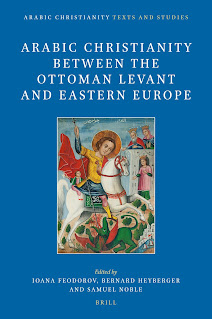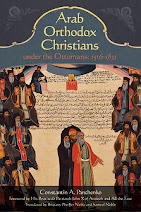Arabic original here.
We Are Neighbors but We Don't Know Each Other
We are neighbors but we don't know each other. We live in the same neighborhood or the same village. We visit each other, but we remain ignorant of each other. We frequent the same places and we work together in the same office. We study side by side in public and private schools and universities, but we are still ignorant of each other. We form political alliances and enter into two antagonistic political camps, each of which includes Christians and Muslims. Despite this, we're still mired in mutual ignorance.
Lebanon is the country of Muslim-Christian dialogue. Lebanon is the country of coexistence or shared existance or living together. Lebanon is the country that is the message or the model for the encounter between members of different religions. Lebanon is the center of dialogue between civilizations and religions... These are all slogans that really do not express the bitter reality that Lebanese citizens live. Their country is still suffering from the effects of the successive sectarian wars for nearly the past century and a half. Nevertheless, we want to regard these slogans as the highest goal for which the Lebanese strive in their common political and social life. We cannot accept all these slogans unless it is in the hope that they will be realized in the near future.
I have taught Christianity in an institute of advanced Islamic studies and I have taught Islam in more than one institute of Christian theology and I have found general ignorance among both groups about the most basic traditions, customs, feasts, occasions, dogmas and rituals practiced by the other group. The student of Christian theology does not know the meaning of the commemoration of Ashura, its history and the reason for Shiites' strong feelings about it. He does not know what the five pillars are and there is a generally distorted image among all students when it comes to talking about the Druze and their monotheistic doctrine. As for the student of Islamic law, he knows nothing of the symbols of the liturgy, communion, baptism and the holy sacraments and nothing about Church history and holy orders... Questions whose answers you would imagine should be obvious, whose answers you would think that every Lebanese would know, especially students of Christian theology and Islamic law, because of mixing socially and being each other's neighbors. You will find disappointment wherever you look.
True knowledge is what every Lebanese needs, a knowledge where every religious group presents itself as it is and each church as it is. In this way there will be an end to the distorted prejudices that were formed by the collective imagination of each group about the other group. The importance of this true knowledge is that it leads to the true mutual familiarity and constructive dialogue that is necessary in order to solidify the national encounter for the good of God's servants and the building-up of the country.
The basic key to this hoped-for knowledge lies in adopting common Muslim-Christian religious education in schools. Religious instruction in Lebanon still divides up a single class according to the religion of the student, and this gives the students the impression that all the academic subjects unite them while God divides them. Thus there has come to be a need for establishing a unified religious curriculum along the pattern of the humanities like philosophy and the history of civilizations that presents without preaching, evangelizing or proselytizing the history, rituals, and dogmas of the religions and the biographies of the most important personalities, as presented by the various religious communities. In this way the schools will contribute to raising students with true knowledge of others with different religions and to eliminating from their minds all the distorted accounts that are based on erroneous prejudices.
We Are Neighbors but We Don't Know Each Other
We are neighbors but we don't know each other. We live in the same neighborhood or the same village. We visit each other, but we remain ignorant of each other. We frequent the same places and we work together in the same office. We study side by side in public and private schools and universities, but we are still ignorant of each other. We form political alliances and enter into two antagonistic political camps, each of which includes Christians and Muslims. Despite this, we're still mired in mutual ignorance.
Lebanon is the country of Muslim-Christian dialogue. Lebanon is the country of coexistence or shared existance or living together. Lebanon is the country that is the message or the model for the encounter between members of different religions. Lebanon is the center of dialogue between civilizations and religions... These are all slogans that really do not express the bitter reality that Lebanese citizens live. Their country is still suffering from the effects of the successive sectarian wars for nearly the past century and a half. Nevertheless, we want to regard these slogans as the highest goal for which the Lebanese strive in their common political and social life. We cannot accept all these slogans unless it is in the hope that they will be realized in the near future.
I have taught Christianity in an institute of advanced Islamic studies and I have taught Islam in more than one institute of Christian theology and I have found general ignorance among both groups about the most basic traditions, customs, feasts, occasions, dogmas and rituals practiced by the other group. The student of Christian theology does not know the meaning of the commemoration of Ashura, its history and the reason for Shiites' strong feelings about it. He does not know what the five pillars are and there is a generally distorted image among all students when it comes to talking about the Druze and their monotheistic doctrine. As for the student of Islamic law, he knows nothing of the symbols of the liturgy, communion, baptism and the holy sacraments and nothing about Church history and holy orders... Questions whose answers you would imagine should be obvious, whose answers you would think that every Lebanese would know, especially students of Christian theology and Islamic law, because of mixing socially and being each other's neighbors. You will find disappointment wherever you look.
True knowledge is what every Lebanese needs, a knowledge where every religious group presents itself as it is and each church as it is. In this way there will be an end to the distorted prejudices that were formed by the collective imagination of each group about the other group. The importance of this true knowledge is that it leads to the true mutual familiarity and constructive dialogue that is necessary in order to solidify the national encounter for the good of God's servants and the building-up of the country.
The basic key to this hoped-for knowledge lies in adopting common Muslim-Christian religious education in schools. Religious instruction in Lebanon still divides up a single class according to the religion of the student, and this gives the students the impression that all the academic subjects unite them while God divides them. Thus there has come to be a need for establishing a unified religious curriculum along the pattern of the humanities like philosophy and the history of civilizations that presents without preaching, evangelizing or proselytizing the history, rituals, and dogmas of the religions and the biographies of the most important personalities, as presented by the various religious communities. In this way the schools will contribute to raising students with true knowledge of others with different religions and to eliminating from their minds all the distorted accounts that are based on erroneous prejudices.








1 comment:
Mamnounak Abouna,
Isjazhi Ya Rab
Post a Comment